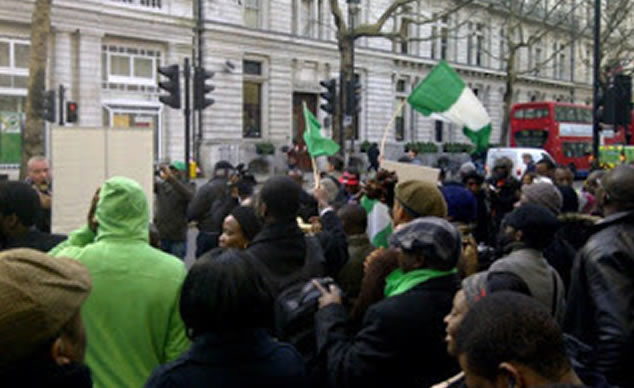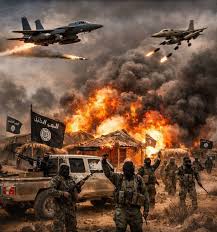
Russia sending Nigerians, other African students to war for visa renewal – Report
According to Bloomberg, Russia is purportedly sending hundreds of international students and migrants to fight alongside its soldiers in the conflict with Ukraine in exchange for visa renewals.
The evaluation was carried out, according to the Business news platform, by certain European authorities who claimed that the Kremlin is employing the strategies initially used by the Wagner mercenary group in order to acquire more personnel.
According to officials familiar with the situation, Russia has been threatening not to renew the visas of African youth and students unless they consent to enlist in the military.
According to a European diplomat, Moscow has been recruiting prisoners from its jails, and some Africans in Russia on work visas have been imprisoned and forced to choose between fighting or being deported. According to the official, who like other named individuals spoke on condition of anonymity, some of those individuals had been able to bribe officials to stay in the nation and yet evade military service.
Under coercion, Russia has been sending students and migrants into combat since early in the war, according to another European diplomat. According to the official, the reason why those forces have such high death rates is because they are frequently used in high-risk offensive operations to defend better-trained units.
An email for clarification from a Russian Foreign Ministry spokesperson was not answered.
Russia has reportedly launched a global recruitment campaign to hire foreign mercenaries in at least 21 countries, including several in Africa, according to sources from Ukrainian intelligence. Recruitment drives for the Army provide attractive salaries and signing bonuses to prospective contract troops. Additionally, recruiters have targeted students and migrants who had previously sought jobs in Russia. In certain instances, they have even enticed others with the promise of lucrative labour before compelling them to enlist in the military and prepare for combat.
President Vladimir Putin may use Russia's capacity to raise much larger military forces as leverage in the conflict as he looks to seize an opportunity this year.
However, as of right now, his soldiers have only been moving slowly ahead in northeastern Ukraine and suffering heavy losses, despite a shortage of troops and ammunition on the Ukrainian side.
The UK Ministry of Defence claims that in May, the Russian military suffered more than 1,200 casualties per day—its highest rate of the entire war. According to estimates from the UK, Russia has lost or injured about 500,000 soldiers since the invasion started. These numbers cannot be independently verified by Bloomberg.
Putin seemed to suggest that the number of Russian forces killed or injured each month is roughly 10,000, while the number of Ukrainian casualties is five times higher, during a meeting with foreign reporters in St. Petersburg late on Wednesday.
In spite of its inability to make headway in the war, the Kremlin has intensified its bombing campaign against Kharkiv, the second-largest city in Ukraine. According to Western officials, those attacks seem to be intended to render the city uninhabitable.
Putin has resisted a full-scale mobilisation thus far in an effort to retain popular support in Russia, but the country claims that it has made up a sizable portion of its losses — in terms of troop numbers, if not standards — thanks to a voluntary recruitment campaign that has drawn tens of thousands of participants.
Approximately 400 young Nepali males are known to have been recruited by Russia, according to information released by the Kathmandu administration earlier this year. However, it is possible that many more have enlisted without the government's knowledge. Nepalis may have gone to Russia and other countries in search of employment as a result of India's decision to discontinue hiring Gurkhas from Nepal for its army, breaking a 200-year-old custom.
According to a top Ukrainian official, they have seen an uptick in the number of foreign fighters among the prisoners Ukraine has captured on the battlefield. Africans and Nepalis have been particularly common, they said.
According to a second European official, some of Ukraine's friends have been thinking about informing the impacted nations about what they know.
The Group of Seven countries, whose leaders' summit is scheduled for next week in Italy, have been attempting to convince governments of the so-called Global South to provide Ukraine with further support. However, a lot of those countries have chosen to maintain their neutrality, and Moscow has focused its disinformation efforts on the people living in those countries.
According to a Reuters story from the previous year, the mercenary organisation Wagner had enlisted a number of African nationals for its operations in Ukraine as part of an effort to recruit prisoners from Russian jails. Three guys from Tanzania, Zambia, and the Ivory Coast had their stories followed by the news agency.
According to Yevgeny Primakov, president of Rossotrudnichestvo, an organisation dedicated to disseminating information about Russia abroad, there are approximately 35,000–37,000 African students in Russia.
"We enrol roughly 6,500 African students in Russia for free each year," he stated on Thursday at the St. Petersburg International Economic Forum.





